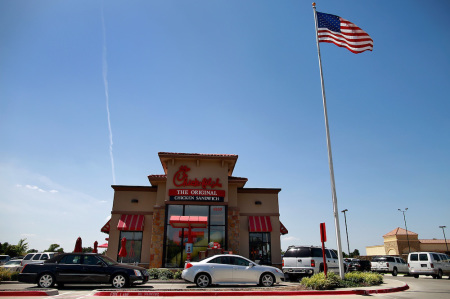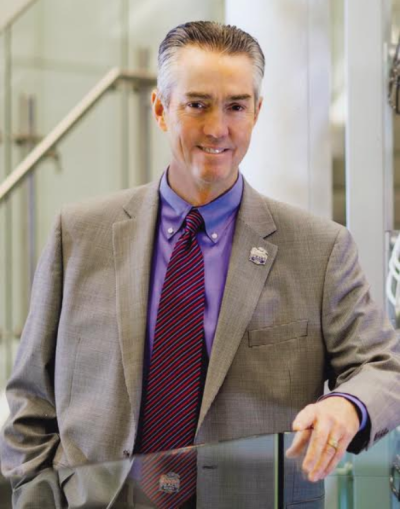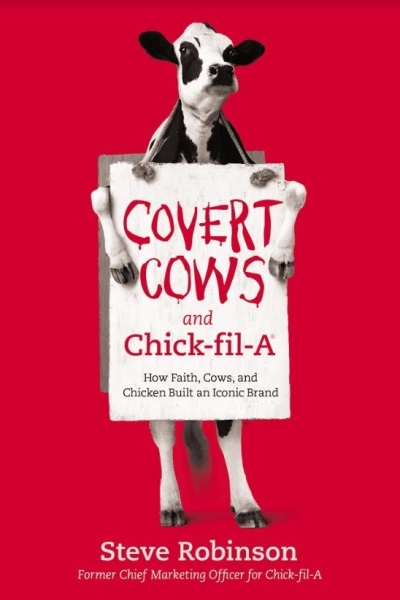How Chick-fil-A’s Christian purpose statement helped revitalize chain on ‘brink of going under'

While Chick-fil-A has blossomed over the last several decades to become America’s third-largest restaurant chain, there was a time during the financial recession in the 1980s when it looked as though the Christian-run business was on the “brink” of closing as mall development stopped.
Steve Robinson, who served as Chick-fil-A’s chief marketing officer from 1981 until his retirement in 2015, detailed in a recent interview with The Christian Post that the most important element of the mall-based chicken sandwich chain's “miraculous” recovery was the creation of the Chick-fil-A “corporate purpose.”
The corporate purpose, created at an off-site meeting of the Chick-fil-A executive committee in 1982, was the first time that the company’s biblical values were officially put down in one official statement.
“One of the really unique things about that [crisis in] 1982-1983 was it catapulted us to get clear about how we were going to market the business, to get very clear about how we're going to empower operators to be the primary brand representatives in the community,” said Robinson, who has a new book designed to serve as a “biography of the brand.”

“It got us really focused on cash management. And it really made us realize our future is probably not in malls and we better be figuring out what else we're going to do to help the business grow. It led to a two-and-a-half year development process for the first free-stander that opened in 1986. So, yeah, that crisis was catalytic to a lot of stuff, but none more important than the purpose statement.”
The corporate purpose calls on the chain and its employees to “glorify God by being a faithful steward of all that is entrusted to us and to have a positive influence on all who come into contact with Chick-fil-A.”
Robinson authored the new book Covert Cows and Chick-fil-A: How Faith, Cows, and Chicken Built an Iconic Brand. The book shares Robinson’s experiences as he participated in the company’s evolution into a nationwide brand.
Joining in 1981, Robinson witnessed things such as the decision for Chick-fil-A to remain closed on Sundays and the creation of the company's iconic “Eat Mor Chikin” advertising campaign.
Along with Chick-fil-A’s innovative marketing decisions as well as its brand strategies, the book also shares the background of Chick-fil-A founder Truett Cathy, who ran a diner with his brother in South Atlanta called the Dwarf House for 21 years before the first Chick-fil-A was opened in the Greenbrier Mall in a suburb of Atlanta.
“Chick-fil-A was really the pioneer of not only the chicken sandwich but the pioneer of food service in malls,” he told CP.
Despite the early successes, one of the worst economic crises in American history struck just two years into Robinson’s career at Chick-fil-A.
“Mall development came to a screeching halt, retail sales crashed and so did Chick-fil-A sales,” he said. “And we had a real cash burden.”

It was in the middle of the financial crisis in 1982 that the Chick-fil-A Executive Committee, which Robinson was a relatively new member of at the time, went to an off-site hotel for a meeting to figure out how to deal with the crisis and ensure the company’s mission is preserved during good times and bad.
“That's where, as one, we wrote the corporate purpose,” Robinson said.
“I mean, we were on the brink of going under. And when we were sitting in that hotel room talking about what we're going to do, we made some tweaks to the plan and we froze hirings, we froze salary increases and we cut the number of stores, cut expenses and did all the things a typical business would do.”
In that meeting, Robinson recalls Cathy carried the theme of the meeting by explaining that Chick-fil-A was really a gift to him.
Robinson paraphrased what Cathy said to members of the executive committee in that meeting:
“When I was running the Dwarf House, I had no intentions of creating a chicken sandwich. It was a simple idea. That's why I was able to do it. I certainly had no idea it would spawn a business. And my primary concern is that we're good stewards of the gifts that God has given me and us.”
To Cathy, Robinson said, stewardship meant being good stewards of people, money and influence.
“And he literally told us, if we're not great stewards of the gifts, then we're not going to have a right to honor God or to have a positive influence,” Robinson recalled. “This business is a gift that God gave me and we're going steward it together. And if He chooses to help us survive and prosper, great. If not, so be it.”
Robinson said that Cathy established early in his career that the “why” in business matters just as much as, if not more than, the “what.”
“In fact, he even said that even though profits are the lifeblood of the business, it's up to God whether it survives or not,” Robinson stated. “And it set the cultural foundation for our young executive committee because other than Jimmy Collins, the CEO, and Truett, we were all young bucks in our early 30s.”
“And it was a real eye-opening experience. But that statement still is the ultimate litmus test on everything Chick-fil-A does. Whatever the initiative is, if it doesn't represent good stewardship that has the potential of glorifying God and serving others in a positive way, we probably shouldn't be doing it.”
According to Robinson, the creation of the corporate purpose statement made making business decisions much easier.
After the corporate purpose was adopted in 1982, Robinson said Chick-fil-A experienced “miraculous” growth.
“There's no way to explain it,” he said. “The next year, we had a 36 percent sales increase. And let me assure you the financial crisis and the retail crisis was not over.”
Robinson said that he has already been told by professors at schools such as Northwestern University and Auburn University that they plan to use his book as somewhat of a “case study” for business development classes.
“It is just a real brand story,” he said.
“Chick-fil-A figured out how to attract great operators, keep your operators and train them, who in turn attract, keep and develop great team members. Quality attracts quality.”
Follow Samuel Smith on Twitter: @IamSamSmith
or Facebook: SamuelSmithCP





















